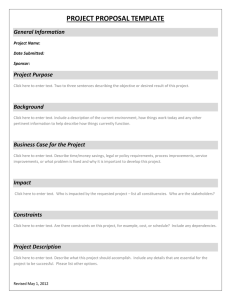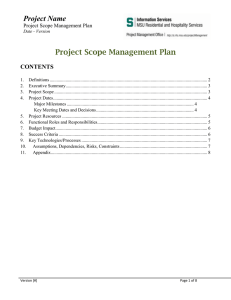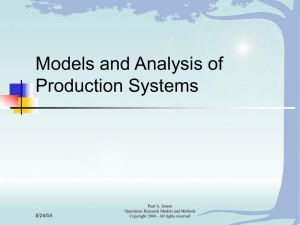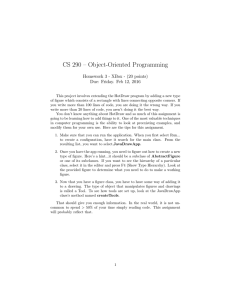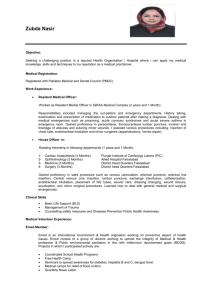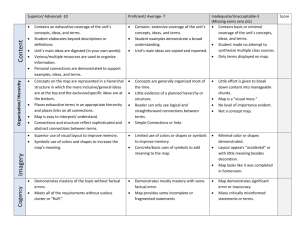Deriving Expectations to Guide KB Creation Jihie Kim Yolanda Gil
advertisement
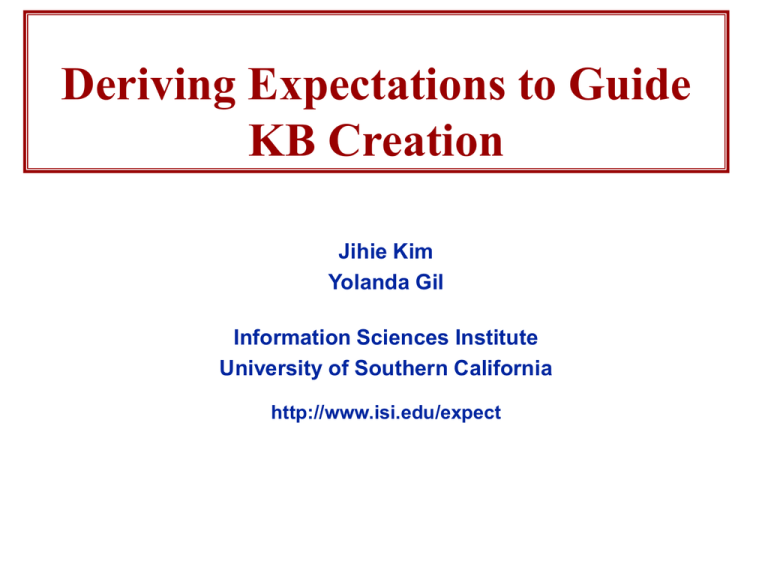
Deriving Expectations to Guide KB Creation Jihie Kim Yolanda Gil Information Sciences Institute University of Southern California http://www.isi.edu/expect Motivation • Today’s KA tools (such as EXPECT & Protégé) guide users effectively by having expectations that are derived from dependencies among components in KBS – example: dependencies between factual knowledge and problemsolving methods Factual Knowledge • User: Add Havana as a new seaport • System: You need to tell me about the berths of Havana because I need to know how to dock ships Problem Solving Knowledge Problem: During initial KB creation when there is a smaller body of knowledge in the KB, where can we get expectations to guide users? EMeD: EXPECT Method Developer • What it does: Acquire problem-solving methods from users “In order to estimate the duration of an earthmoving operation, compute the volume of earth to be moved and the bulldozing rate based on soil type” • Expectations come from – Dependencies among problem-solving methods – Relationship between capability(I.e., purposes or goals) of methods – Dependencies between factual knowledge and methods – Dependency between components within a method based on representation language – User-specified dependencies Current Functionality • Method Editor/Organizer – Create, modify, delete, copy & edit methods – Organize methods into groups • Method Sub-method Relation hierarchy – Compute potential subgoals created from methods and link subgoals to other method that achieve them • Method Capability (purposes or goal) hierarchy – Hierarchy of method capabilities based on their subsumption relation (Method1 is more specific than Method2) • Example: “estimate average speed of aircraft” is more specific than “estimate average speed of vehicle” Functionality (cont) • Undefined methods – List subgoals referred fom a method but not achieved by any existing methods • Example: no method to find bulldozing rate for soil type • Method Search based on subsumption relation – Find methods who refer to subsumer/subsumee of given term (concept, relation, instance) • Example: find all methods related to bulldozer • Error messages – Separate errors of each method from global errors EMeD Architecture Server (Lisp) Client (Java) Method Editor/Organizer Expect Methods Loom KB Dependency Manager Interface Manager API XML Encoder API HTTP Method Sub-method hierarchy Capability hierarchy Undefined Methods Subsumtion-based Search XML Error Messages Decoder EMeD User Interface Expectation-Based Method Development: Preliminary Evaluation Results EMeD Without EMeD Total Time (minutes) Number of methods added 153 24 6.4 218 25 8.7 Method creation rate (min/method) Method development time reduced by 30% Now collecting metrics on the use of different types of expectations Benefits • Provide guidance during initial KB creation – Guide users to fill missing knowledge – Guide users to find errors earlier – Help users understand the KB during its initial development
